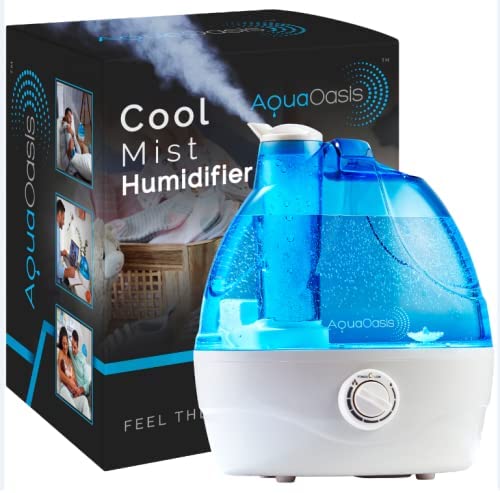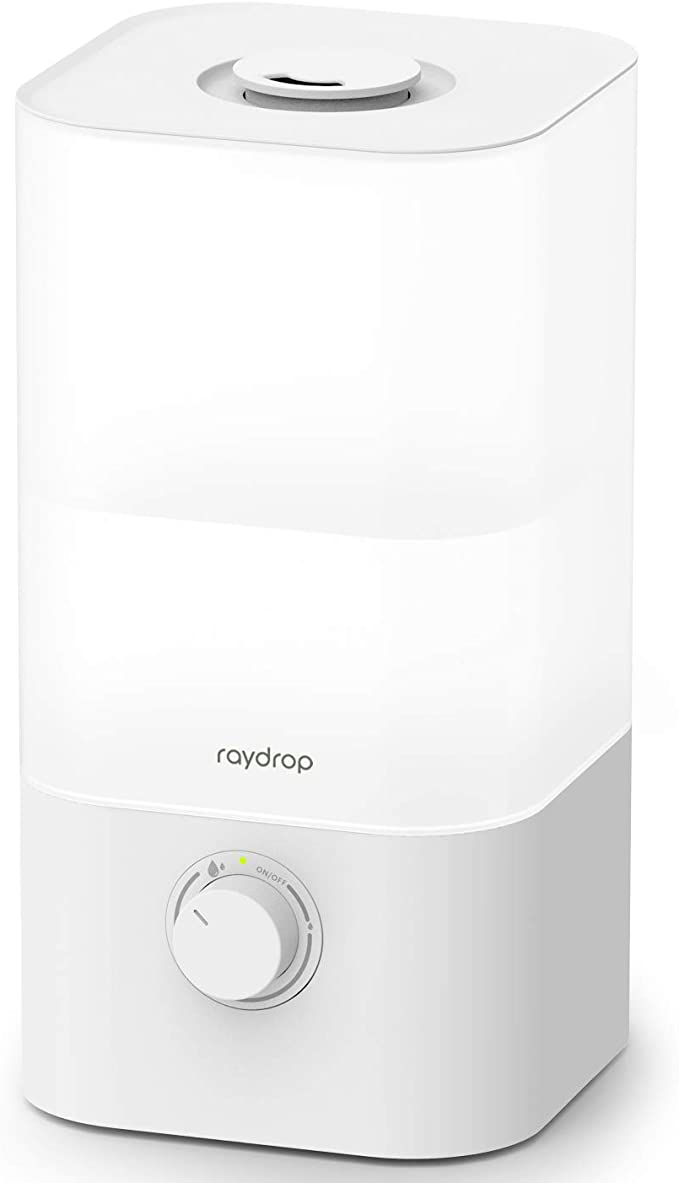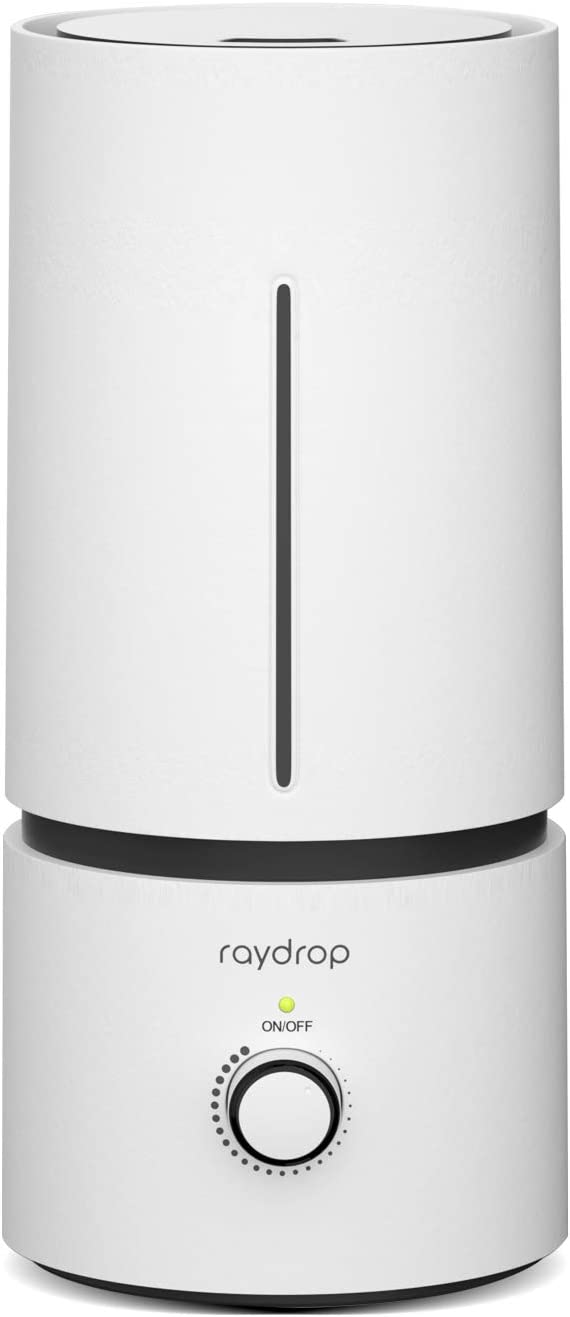Humidifiers are powerful and reliable devices designed to boost humidity in excessively dry spaces. The significance of humid air for optimal bodily functions might not be evident unless one lives in an arid area. For example, arid air can result in extreme throat dryness, potentially triggering profound bouts of coughing, and it may also dehydrate your respiratory tract, making breathing a challenge.
A dry nose can lead to nosebleeds; dried up skin can lead to cracking up, especially around your lips; and dried eyeballs can result in irritation. This can happen during the summer months, and also if you live in areas where it is normally hot and there is little humidity in the air.
Humidifiers work by adding moisture to the air so that you can have well-functioning airways, eyeballs, and skin that is not dry and ashy. In this article, we will look at the various uses of humidifiers, specifically in combating sleep apnea and making life a little easier for babies.
As with all technology, there are some risks involved when using a humidifier, and we will break that down in this article and find ways to reduce the risks. This way, you can be well-informed when you make that humidifier purchase.
Benefits of Using a Humidifier
As mentioned before, humidifiers add moisture to dry air, and this has a myriad of benefits. These include:
- Warming the house: yes you can have a well-functioning heater warming up your home during the colder months, but did you know that dry warm air can actually start to feel cold? The moisture from a humidifier adds extra weight to the air in your home and as a result, your house becomes warmer. A bonus is that you do not have to have your heater cranked all the way up when you use a humidifier; the right humidity level will have your home feeling snug without hurting your electric bill.
- Moisturizing your skin and lips: your skin dries out when there is little humidity in the air. This can be a result of natural dryness or artificial heating that reduces the moisture levels in the air of your home. You know your skin is dry when it feels tight, especially around the face and palms. Humidifiers add moisture to the air and so your skin is rehydrated. You cannot and should not always use skin moisturizers to combat skin dryness, so a humidifier is your friend. As we all know, well-moisturized skin goes a long way in adding comfort to your daily life and preventing premature aging.
- Plant protection: yes, humidifiers are good for house plants too. Plants heavily depend on moisture to function well. Otherwise, you have plants with wilting leaves and stunted growth. The moisture from your humidifier keeps the plant leaves supple, and if you remember your biology class correctly, the moisture is used to create food for the plant, aiding in its growth.
- Wood protection: wooden furniture and floors do not come cheap and nobody wants to see cracked wooden furniture unless that is aesthetic. Lack of moisture can also negatively impact the wooden furniture and floors in your home, giving them an abandoned look and wasting your good money. Combat all that by purchasing a humidifier. The right level of moisture in the air goes a long way in keeping the wood grains together and prevents splitting.
Humidifier Benefits for Snoring and Sleep Apnea
Sleep apnea is one of the most common sleep disorders but one that goes majorly undiagnosed because the symptoms exhibit themselves when you are asleep. When you have sleep apnea, your breathing pattern when sleeping changes, sometimes pausing. These pauses can happen up to 30 times an hour, giving you a restless and uncomfortable sleep. They are caused by blocked airways and can be noticed when someone gasps in their sleep or snores. In more dangerous cases, the airways are completely blocked and someone suffocates in their sleep.
Humidity levels play a part in this phenomenon. When the humidity is low, the moist mucus in your nose and other air passages dries up, and air has a hard time reaching the lungs as it gets stuck in several crevices in your airways. Snoring occurs when air gets stuck in your sinuses and bounces around, causing them to vibrate in order to release this air.
You need moisture since air needs to dissolve properly in order to travel seamlessly through your air passages. The moisture released by a humidifier mixes with the mucus in your airways, facilitating a smooth flow of mucus and as a result a smooth breathing process. When your air passages are well-moisturized, air will not get stuck in your sinuses since they will be lubricated by mucus. This means that you will breathe easier, experience less snoring, and with the help of your sleep apnea therapy machine, you get to sleep better and for longer.
However, too much humidity can be disruptive to your sleep. High humidity makes your room warmer and you will start sweating on your sheets. This is the most uncomfortable feeling and will disrupt your sleep as you keep turning around in order to find a cooler spot. In order to reduce the chances of this happening, you need to find the optimum humidifier level that releases just enough moisture to keep your bodily functions well-lubricated but without overheating your body and causing you to sweat excessively.
Benefits of Humidifiers to Babies and Children
Humidifiers are good for our little buddies too, much in the same way they are good for us. Having a humidifier in your child’s room or a humidifier for the whole house will benefit even our little ones and vastly improve their health. If your skin is sensitive to dryness, just imagine how much more sensitive a baby’s skin is. For infants who were used to the moist conditions of a womb, coming out into dry air can be quite the shock for their systems.
Whether it is dry warm air from your heater or cooler air from your AC, your baby’s skin will react by becoming as dry as the air and it might become flaky if steps are not taken to prevent this. Before your baby starts developing rashes and starts crying from the discomfort, get their room a humidifier so that her skin can remain supple and healthy.
A child’s air passages are narrower than an adult’s, and if air does not move efficiently through this tiny system, it is easy for a young one to get a congested nose and throat. This makes it difficult for them to breathe and it can be dangerous especially if it is noticed early on. A humidifier keeps your baby’s air passages well-lubricated and open, facilitating easier breathing.
You can comfortably leave your child to play in their cot without worrying about clogged air passages. At night, you will not need to check up on your precious one to see if they are breathing as they should because you know your trusty humidifier is getting the job done.
Humidifiers are also great helpers when your baby gets a cough or a cold. When a child gets a cold or the flu it can get pretty hectic since they cannot yet use most of the medicines that we use to alleviate our own colds. It is heart-wrenching for a parent to watch their child dry cough and experience difficulty in breathing due to a cold.
The warm air from a humidifier liquifies the congested mucus in your baby’s chest and nose, making it flow out faster, and easing your baby’s breathing. The warmer air is also good for keeping future colds at bay.
Possible Benefits of a Humidifier in the Spring and Summer
It is easy to assume that humidifiers are only good for the winter months when your home heater is on throughout. The uses of a humidifier, however, extend to cover all seasons, including the warmer spring and summer months.
Anyone with allergies knows that the spring and summer months are peak allergy season. This is because life starts afresh during spring with the birds and the bees pollinating and plants springing back to life after the dormant winter months. This means that instead of enjoying the day at the beach or by the pool, you might spend whole days indoors battling a runny nose.
Moisture keeps your nose and sinuses lubricated, keeping infections at bay due to a healthy flow of mucus. The moisture helps to lubricate your airways, keeping your hydrated. Humidifiers also kill germs present in the air and trap allergens whose main purpose seems to be to put you out for the count. With a humidifier, you can say goodbye to itchy eyes and noses that signal the summer months for allergy sufferers.
Believe it or not, humidifiers work jointly with air conditioners to keep you cool during the warmer months. While humidity is most times undesirable during the summer, humidifiers liquefy the dry cool air that is pumped by your AC, regulating the air in your home to the optimum temperature for relaxation.
Your AC does not need to be cranked down to the lowest temperature possible, something that uses a lot of energy and raises your electric bills. Having a humidifier as a temperature regulator is good news for your pocket and the environment.
Which Humidifier Should You Get?
There are very many varieties of humidifiers of all sizes out there, and it is easy to be confused by the many choices. The basic types of humidifiers are:
- Steam vaporizers generate steam using electricity. The steam is cooled to the set temperature before being blown out into the room
- Evaporators heat up the water in the reservoir and push air past the evaporated water.
- Ultrasonic humidifiers vibrate at high frequencies, turning the water in their reservoirs into a very fine mist that is blown out into the room.
- Impeller humidifiers have in-built discs that rotate and vaporize the water within.
The EPA suggests using evaporative and steam humidifiers, citing them as being less dangerous for health. Ultrasonic humidifiers vibrate everything within the humidifier, including bacteria, and blow them out into the room.
Impeller humidifiers are child-friendly but might have the same issues as ultrasonic humidifiers if they are not cleaned frequently and the wrong kind of water is used. The URPOWER Essential Oil Diffuser is one of the most loved ultrasonic diffusers on Amazon since it is quiet, good-looking and you can put an essential oil of your choice into it to ease your allergies.
The Pure Enrichment MistAire XL Ultrasonic Cool Mist Humidifier is inexpensive and suitable for areas of up to 500 square feet. This means you can use just one humidifier to moisturize large parts of your home.
Tips for Using a Humidifier in Your Home
- Clean your humidifier regularly, preferably twice or thrice a week. Clean the humidifier in your baby’s room daily using plain warm water and unscented soap.
- Regulate the humidity level and keep it below 60%. If your humidifier does not have an in-built regulator, buy a hygrometer for the purpose.
- Always put clean, soft water in your humidifier’s reservoir since it has few minerals that will stick to the walls of your humidifier. If you can, use distilled water.
Risks to Consider
All technology has a downside and that is no different for a humidifier. Although the benefits are numerous, there are some risks involved with the use of a humidifier. These include:
- Too much warmth: just as we prefer being warm over being cold, so do microbes and other illness-causing organisms like bacteria. This is why most of us fall sick during colder seasons: we bundle up to stay warm and so do germs. Organisms like mites and mold love warm, damp areas and it is very easy to get allergies and colds when there is too much humidity in our homes. This is why it is important to know the right level to set our humidifiers and maintain that level.
- Dirty humidifier: your humidifier needs to be cleaned regularly, and for good reason. The allergens in your home’s air accumulate in the water reservoir of your humidifier, and when steam or mist is blown out, so are they. This means that you directly inhale these particles, and this can lead to a myriad of health issues. From a mild cough to flu to a viral inflammation called humidifier fever, a dirty humidifier can pose serious health issues, especially to kids with asthma. You need to clean your humidifier at least every 3 days. Clean it using plain warm water and unscented soap to prevent the harsh chemicals in disinfectants from being blown out straight into your breathing system when you next use your humidifier.
- Using the wrong water: yes, this is a thing. The water from your tap can have tons of microbes that will be blown out with the steam from your humidifier. To be on the safe side, the EPA recommends using distilled water for your humidifier. This way the possible number of germs that will be blown out is greatly reduced.
Final Verdict
Whether it is the cold season or the warm summer months, a humidifier is simply a must-have for any self-loving individual. It has numerous health benefits, from moisturizing your skin and keeping it supple to facilitating good airflow in your breathing system, preventing congestion, and easing colds.
Humidifiers are especially recommended for babies and children who have narrower air passages and need all the help they can get to breathe. The uses of a humidifier go beyond people as the moisture they produce is good for your house plants, pets, and furniture too.
Now that you know both sides of the coin regarding humidifiers, you can tell that the pros outweigh the cons. So go ahead and get yourself a humidifier before the cold really settles in and enjoy your winter.




